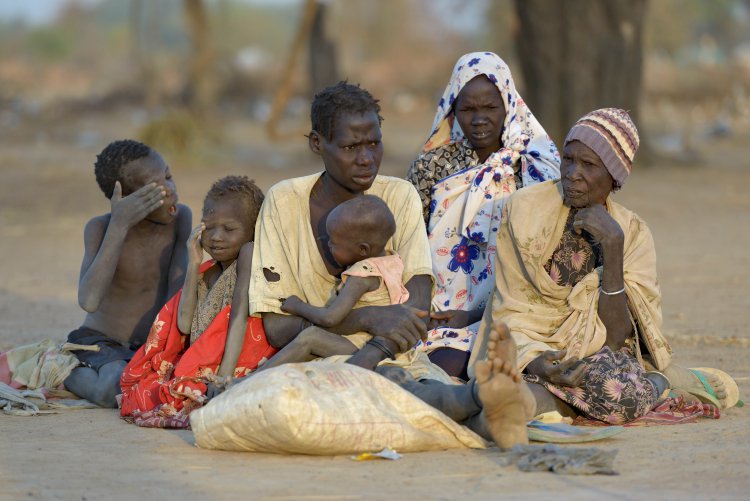‘Support peace-building in South Sudan’ plea

People in South Sudan are on the brink of famine after seven years of civil war, warn Christian Aid and the Church in Wales in a call to the Government to prioritise peacebuilding in the country.
A new report by international food security experts shows that six counties in South Sudan are facing starvation as the seven year anniversary of the beginning of the last civil war is marked. Christian Aid, together with the Church in Wales, is asking the Government to use the full weight of its merged powers in the Foreign, Commonwealth & Development Office (FCDO) to call for improved humanitarian access, and to urge for the rapid implementation of the peace agreement as delays are believed to be one of the main causes of the food crisis.
Christian Aid’s peace-building work in South Sudan is one of the projects supported by the Church in Wales’ Centenary Appeal. The charity says the deadliest factor which stymies efforts to halt the worsening food insecurity is continued violence and armed conflict. Without nation-wide investment in peacebuilding, including reconciliation and healing processes, alongside retributive justice, and without significantly stepping up the political, economic and structural reforms within the peace agreement, food insecurity will only worsen.
The Archbishop of Wales, John Davies, says, "Through our ties with the Anglican Church in South Sudan, and our Centenary Appeal, we know that this young nation has suffered greatly in a short period.
The efforts to build peace there have been central to the work of the Church and we’ve had the opportunity to support that work recently. But there is so much more to be done.
"The necessary development work needed in one of the world’s poorest countries is hampered by conflict. I urge the UK government to do all it can to support the peace building process."
James Wani, Christian Aid’s South Sudan country director, based in Juba said, “If you look at the evidence that we have, and bear in mind that the situation is likely to be worse given the gaps in the formal information available, famine is most likely already happening. Floods, conflict and Covid-19 have entwined to deliver devastation and fuel the food crisis– the combined result is the destruction of crops, livelihoods, houses and dwellings, roads have become impassable, markets have stopped, supply chains have been crippled, and food prices have soared. Hunger is an ally of Covid-19.
Christian Aid’s South Sudanese partners and our own team continue to make a considerable difference in communities across South Sudan through humanitarian, peacebuilding and development.
“The legacy of the conflict in Greater Upper Nile, where starvation was used as a weapon of war by denying humanitarian access, is still being felt as communities try to recover but the compounding effects of Covid-19, flooding and inter-communal fighting sustain their vulnerabilities.”
Christian Aid calls on the UK Government to increase support for programmes which increase the resilience of communities, including an increase in cash and voucher distributions so people can choose exactly what they need most, and to invest in local and national humanitarian agencies who are at the forefront of tackling the crisis and leading reconciliation processes.
According to the Famine Review Committee report released by the Integrated Food Security Phase Classification, western Pibor county in Jonglei state is facing a likely famine with some indicators surpassing phase 5 catastrophe/famine, the worst classification possible. Pockets of Akobo (Jonglei), Aweil South (Northern Bahr El Ghazal), and Tonj North, East and South (Warrap) are also in phase 5 catastrophe. 73 other counties have populations in phases 3 (crisis) or 4 (emergency). Current levels of food security assistance would not be sufficient to avert a famine.